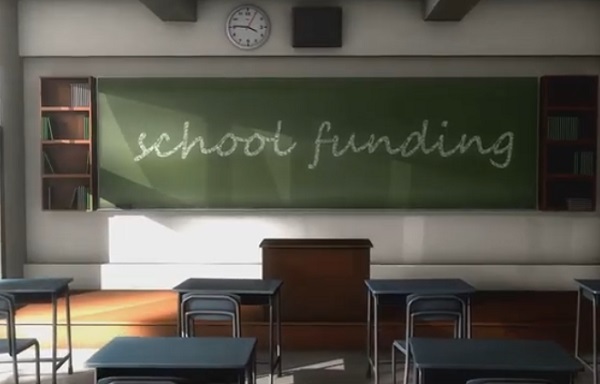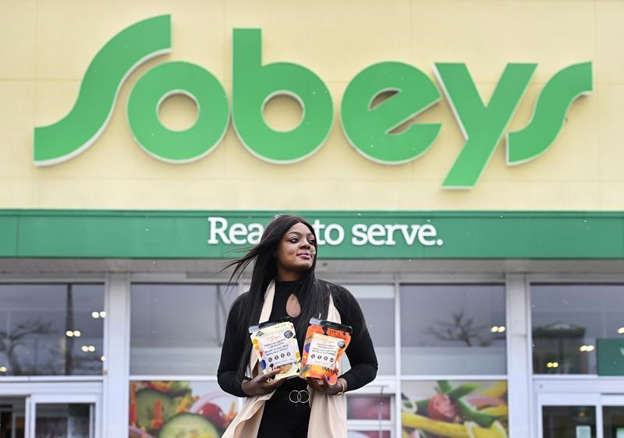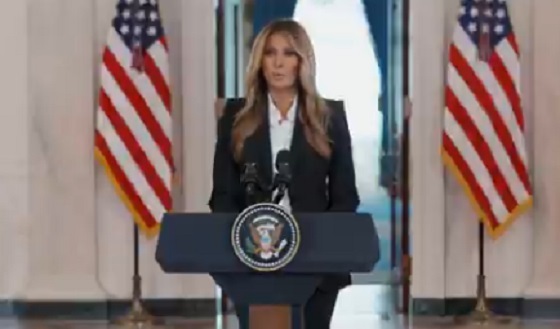2025 Federal Election
Liberals Replace Candidate Embroiled in Election Interference Scandal with Board Member of School Flagged in Canada’s Election Interference Inquiry

 Sam Cooper
Sam Cooper
Retired Toronto Police Deputy Chief Peter Yuen, who joined the board last year of a Chinese international school in Markham flagged in testimony on foreign interference in a neighboring riding in 2019, has been named the new Liberal candidate in Markham–Unionville. He replaces Paul Chiang, who resigned last week amid an RCMP review into controversial remarks suggesting a Conservative opponent could be handed to Chinese officials for a bounty.
The appointment places Yuen—now a central figure in Prime Minister Mark Carney’s campaign—at the center of a riding already under scrutiny in Canada’s evolving foreign interference investigation.
Paul Chiang, a former Markham police officer who unseated longtime Conservative representative Bob Saroya to win Markham–Unionville for Team Trudeau in 2021, stepped down as the Liberal candidate after the RCMP confirmed it was reviewing remarks he made to Chinese-language media in January 2025. During that event, Chiang reportedly suggested that Conservative candidate Joe Tay—a Canadian citizen wanted under Hong Kong’s National Security Law—could be taken to the Chinese Consulate in Toronto to claim a bounty.
In choosing another Chinese Canadian police veteran, the Liberals appear poised to reassure diaspora voters rattled by Chiang’s exit. Yuen, who immigrated from Hong Kong in 1975 and rose to lead Toronto Police’s community outreach and diversity programs before retiring in 2022, brings deep ties to both the Hong Kong diaspora and the mainland Chinese community in Markham—connections that may stir further controversy.
Videos and a report posted on the Toronto Chinese Consulate’s website show that in 2018, Peter Yuen attended a gala hosted by the Confederation of Toronto Chinese Canadian Organizations—an association with direct ties to the Chinese Consulate and Beijing’s United Front Work Department. During the event, which featured remarks from China’s Toronto Consul General to Yuen and other Canadian politicians, Yuen stood beside a prominent Markham community leader known for attending high-level United Front meetings in Beijing with President Xi Jinping, and sang the patriotic song My Chinese Heart.
In August 2024, Peter Yuen joined the board of NOIC Academy in Markham, an educational institution that came under scrutiny during Ottawa’s Foreign Interference Inquiry. CBC News and The Globe and Mail reported in April 2024 that testimony at the Hogue Commission—tasked with investigating foreign interference in Canada’s 2019 federal election—revealed that CSIS had flagged irregularities involving NOIC Academy students in the neighboring Don Valley North riding.
According to The Globe, allegations tied to NOIC appeared in a declassified summary of CSIS intelligence released during the inquiry. “Intelligence reported after the election indicated that veiled threats were issued by the (People’s Republic of China) Consulate to the Chinese international students,” the summary stated. The intelligence further suggested that “their student visas would be in jeopardy and that there could be consequences for their families back in the PRC” if they did not vote for a particular Don Valley North candidate.
Don Valley North, the riding that neighbors Markham–Unionville, is where Joe Tay is running for Pierre Poilievre’s Conservative Party in this election.
NOIC announced Yuen’s appointment in an August 2024 statement, writing: “The former Deputy Chief for the Toronto Police Service joined the management team of NOIC Academy officially just last week.” The school added: “Before Peter joined, NOIC’s Advisory Committee was composed of ‘literati’ (educators), but this time a ‘general’ was ushered in.”
The academy, which educates international students from China, further highlighted Yuen’s leadership background: “Deputy Yuen was in charge of Community Safety Command which provides proactive and reactive public safety services and programs in partnership with diverse communities and key stakeholders.”
Joe Tay, a former Hong Kong broadcaster whose independent reporting from Canada drew retaliation from Beijing, issued a statement last week rejecting Paul Chiang’s apology for the bounty remarks, calling them “the tradecraft of the Chinese Communist Party.” He added: “They are not just aimed at me; they are intended to send a chilling signal to the entire community to force compliance with Beijing’s political goals.”
His concerns were echoed by dozens of NGOs and human rights organizations, which condemned Chiang’s comments as an endorsement of transnational repression.
Even after Chiang’s resignation, Prime Minister Mark Carney faced renewed scrutiny for expressing confidence in him just hours before the RCMP announced its investigation. Carney characterized the controversy as a “teachable moment”—a stance that drew sharp criticism.
The Durham Regional Police Association—which represents officers in one of the three Ontario forces where Chiang served—issued a statement condemning Carney’s actions. “We are disappointed in the clear lack of integrity and leadership displayed by Mark Carney to stand by this candidate rather than act after such egregious actions,” the association wrote, adding that Chiang’s conduct “would be held to a higher standard for an active officer in Ontario.”
The group also rejected Carney’s defense of Chiang’s law enforcement background: “The fact that Mr. Carney used Chiang’s policing career as a shield for his actions undermines the great work our heroes in uniform do in their communities each and every day.”
Chiang’s resignation and Yuen’s sudden elevation now place the spotlight squarely on Markham–Unionville—setting the stage for one of the most closely watched races in the coming election.
Come back to The Bureau for continued reporting on Canada’s election.
The Bureau is a reader-supported publication.
To receive new posts and support my work, consider becoming a free or paid subscriber.
For the full experience, please upgrade your subscription and support a public interest startup.
We break international stories and this requires elite expertise, time and legal costs.
2025 Federal Election
Protestor Behind ‘Longest Ballot’ Chaos targeting Poilievre pontificates to Commons Committee

Lawmakers confront organizer Tomas Szuchewycz for flooding ridings with placeholder candidates, targeting Pierre Poilievre’s seat, and wasting public resources.
Szuchewycz’s most notorious move came in Carleton — the riding of Conservative Leader Pierre Poilievre, where the ballot swelled to 91 names, stretching nearly a metre and forcing Elections Canada to redesign how it printed and handled the vote. The LBC framed the stunt as a protest against Canada’s first-past-the-post electoral system. But to most voters, it looked nothing like a principled reform campaign. What they saw was an effort aimed squarely at Poilievre, meant to bury his name among a wall of nobodies and turn the vote into a farce.
Elections Canada had to scramble to manage the chaos: printing extra‑long ballots, re‑training workers, and creating a last‑minute write‑in workaround in Battle River–Crowfoot to keep ballots usable. Seniors and disabled voters complained about the physical size and complexity of the ballot; poll workers faced new logistical headaches; public money was wasted.
At Tuesday’s hearing, Szuchewycz showed no contrition and offered no practical alternative to the system he had tried to upend. Instead, he accused MPs of having a “conflict of interest” in writing election law and demanded that power be handed to an undefined “permanent, non‑partisan body” — without explaining who would select it, how it would operate, or how it would be accountable to Canadians.
The LBC, whose actions led to metre-long ballots in ridings like Carleton (91 candidates) and Battle River–Crowfoot (86), claims to oppose Canada’s first-past-the-post system. But when asked how his proposed independent reform body would be formed, selected, or held accountable, Szuchewycz had no answers.
Conservative MP Michael Cooper led the charge, accusing Szuchewycz of overseeing a signature-harvesting scheme that involved electors signing blank nomination forms—potentially in violation of the Canada Elections Act. He tabled a January 2024 tweet and an August 2024 YouTube video showing organizers gathering signatures under the claim that candidate names would be “filled in later.”
Szuchewycz denied the accusation, claiming nomination papers had either candidate names or the phrase “all candidates” filled in. But when he tried to discredit Cooper’s evidence by calling it “AI-generated,” the committee chair issued a warning for casting doubt on the authenticity of a Member’s documents without basis. The comment was withdrawn under pressure.
Still, Cooper was unsatisfied, warning Szuchewycz that misleading Parliament could amount to contempt.
Other witnesses—experts and former elected officials—were equally critical of the LBC’s tactics. Dr. Lori Turnbull, a professor at Dalhousie University, called the stunt “undesirable” and a “waste of resources,” though she praised Elections Canada for adapting quickly by allowing a write-in workaround in Battle River–Crowfoot to avoid printing a literal wall of names.
Professor Peter Loewen of Cornell University added that the LBC’s ballot-stuffing “violates the spirit” of competitive democracy and burdens front-line elections staff with unnecessary logistical chaos. He warned that a third-party group acting like a political party without oversight was a loophole that needed closing.
Meanwhile, former Liberal MP Louis-Philippe Sauvé described the real-world toll of the stunt: longer lineups, stressed poll workers, and accessibility hurdles for elderly and visually impaired voters.
In stark contrast to these grounded critiques, Szuchewycz’s testimony revolved around vague accusations of “conflict of interest” by MPs and a call to remove Parliament from electoral reform altogether. No constitutional roadmap. No governance model. No practical enforcement mechanism.
At the end of the day, what Tomas Szuchewycz has done isn’t just a stunt, it’s an insult. He claims Canadians “know what he’s protesting,” but let’s be honest: most voters had no clue this was about electoral reform. What they saw was a campaign to flood ballots with nonsense names in key ridings, especially against the Leader of the Opposition, and create chaos for chaos’s sake.
The takeaway wasn’t a conversation about democracy. It was a spectacle, and one that mocked the very voters he pretends to represent. Lets be clear, This wasn’t activism, it was ego masquerading as principle. And it reeked of entitlement.
Tomas Szuchewycz is the embodiment of unchecked privilege: a man who hijacked our electoral process, wasted taxpayer dollars, and offered nothing in return but smug contempt for the very democracy that gave him the space to pull his stunt.
He claims Canadians understood his message. They didn’t. Most people saw a confusing mess, an attack on the Opposition Leader, and a joke made at the expense of voters, poll workers, and the electoral system itself.
So yes — reform is coming. And it can’t come soon enough.
Parliament must not just close the loopholes it should make sure that when someone deliberately sabotages the integrity of an election, they are held accountable, including being forced to repay the public for the cost of their chaos.
Because in a democracy, you have the right to protest.
But not the right to turn an election into a farce on the public’s dime.
Subscribe to The Opposition with Dan Knight
Invite your friends and earn rewards
2025 Federal Election
Post election report indicates Canadian elections are becoming harder to secure

Chief Electoral Officer Stéphane Perrault highlights strong participation and secure voting, but admits minority politics, rising costs, and administrative pressures are testing the system’s limits.
Monday in Ottawa, Stéphane Perrault, Canada’s Chief Electoral Officer, delivered a long press conference on April’s federal election. It was supposed to be a victory lap, record turnout, record early voting, a secure process. But if you listened closely, you heard something else: an admission that Canada’s election machinery is faltering, stretched thin by a system politicians refuse to fix.
Perrault touted the highest turnout in 30 years, 69 percent of eligible voters, nearly 20 million Canadians. Almost half of those ballots were cast before election day, a dramatic shift in how citizens take part in democracy.
“Twenty years ago, less than 7% voted early. This year, nearly half did,” Perrault told reporters. “Our system may have reached its limit.”
That’s the core problem. The system was built for one decisive day, not weeks of advance voting spread across campuses, long-term care homes, mail-in ballots, and local Elections Canada offices. It’s no longer a single event; it’s an extended process that stretches the capacity of staff, polling locations, and administration.
Perrault admitted bluntly that the 36-day writ period, the time between when an election is called and when the vote happens, may no longer be workable. “If we don’t have a fixed date election, the current time frame does not allow for the kind of service preparations that is required,” he said.
And this is where politics collides with logistics. Canada is once again under a minority government, which means an election can be triggered at almost any moment. A non-confidence vote in the House of Commons, where opposition parties withdraw support from the government, can bring down Parliament in an instant. That’s not a flaw in the system; it’s how parliamentary democracy works. But it leaves Elections Canada on permanent standby, forced to prepare for a snap election without knowing when the writ will drop.
The result? Sixty percent of voter information cards were mailed late this year because Elections Canada couldn’t finalize leases for polling stations on time. Imagine that, more than half the country got their voting information delayed because the system is clogged. And that’s when everything is supposedly working.
The April election cost an estimated $570 million, almost identical to 2021 in today’s dollars. But here’s the kicker: Elections Canada also spent $203 million just to stay ready during three years of minority Parliament. That’s not democracy on the cheap. That’s bureaucracy on retainer.
Perrault admitted as much: “We had a much longer readiness period. That’s the reality of minority governments.”
No Foreign Interference… But Plenty of ‘Misinformation’
Canada’s top election official wanted to make something perfectly clear: “There were no acts of foreign interference targeting the administration of the electoral process.” That’s the line. And it’s a good one… reassuring, simple, the kind of phrase meant to make headlines and calm nerves.
But listen closely to the wording. He didn’t say there was no interference at all. He said none of it targeted the administration of the vote. Which raises the obvious question: what interference did occur, and who was behind it?
Perrault admitted there was “more volume than ever” of misinformation circulating during the 2025 election. He listed the greatest hits: rumors that Elections Canada gives voters pencils so ballots can be erased, or claims that non-citizens were voting. These are hardly new — they’ve appeared in the U.S. and in Europe too. The difference, he said, is scale. In 2025, Canadians saw those narratives across more channels, more platforms, more communities than ever before.
This is where things get interesting. Because the way Perrault framed it wasn’t that a rogue actor or a foreign intelligence service was pushing disinformation. He was blunt: this was a domestic problem as much as anything else. In his words, “whether foreign or not,” manipulation of information poses the “single biggest risk to our democracy.”
Perrault insists the real danger isn’t foreign hackers or ballot-stuffing but Canadians themselves, ordinary people raising questions online. “Information manipulation, whether foreign or not, poses the single biggest risk to our democracy,” he said.
Well, maybe he should look in the mirror. If Canadians are skeptical of the system, maybe it’s because the people running it haven’t done enough to earn their trust. It took years for Ottawa to even acknowledge the obvious , that foreign actors were meddling in our politics long before this election. Endless commissions and closed-door reports later, we’re told to stop asking questions and accept that everything is secure.
Meanwhile, what gets fast-tracked? Not a comprehensive fix to protect our democracy, but a criminal investigation into a journalist. Keean Bexte, co-founder of JUNO News, is facing prosecution under Section 91(1) of the Canada Elections Act for his reporting on allegations against Liberal candidate Thomas Keeper. The maximum penalty? A $50,000 fine and up to five years in prison. His reporting, incidentally, was sourced, corroborated, and so credible that the Liberal Party quietly dropped Keeper from its candidate list.
If people doubt the system, it isn’t because they’re gullible or “misinformed.” It’s because the government has treated transparency as an afterthought and accountability as an inconvenience. And Perrault knows it. Canadians aren’t children to be scolded for asking questions, they’re citizens who expect straight answers.
But instead of fixing the cracks in the system, Ottawa points the finger at the public. Instead of rebuilding trust, they prosecute journalists.
You don’t restore faith in democracy by threatening reporters with five years in prison. You do it by showing, quickly and openly, that elections are beyond reproach. Until then, spare us the lectures about “misinformation.” Canadians can see exactly where the problem lies, and it isn’t with them.
The Takeaway
Of course, they’re patting themselves on the back. Record turnout, no servers hacked, the trains ran mostly on time. Fine. But what they don’t want to admit is that the system barely held together. It was propped up by 230,000 temporary workers, leases signed at the last minute, and hundreds of millions spent just to keep the lights on. That’s not stability. That’s triage.
And then there’s the lecturing tone. Perrault tells us the real threat isn’t incompetence in Ottawa, it’s you, Canadians “sharing misinformation.” Excuse me? Canadians asking questions about their elections aren’t a threat to democracy, they are democracy. If the government can’t handle people poking holes in its story, maybe the problem isn’t the questions, maybe it’s the answers.
So yes, on paper, the 2025 election looked like a triumph. But listen closely and you hear the sound of a system cracking under pressure, led by officials more interested in controlling the narrative than earning your trust. And when the people running your elections think the real danger is the voters themselves? That’s when you know the elastic isn’t just stretched. It’s about to snap.
Subscribe to The Opposition with Dan Knight .
For the full experience, upgrade your subscription.
-

 Frontier Centre for Public Policy1 day ago
Frontier Centre for Public Policy1 day agoCanada’s Democracy Is Running On Fumes
-

 Education1 day ago
Education1 day agoClassroom Size Isn’t The Real Issue
-

 illegal immigration1 day ago
illegal immigration1 day ago$4.5B awarded in new contracts to build Smart Wall along southwest border
-

 Media1 day ago
Media1 day agoResponse to any budget sleight of hand will determine which audience media have decided to serve
-

 Business1 day ago
Business1 day agoYour $350 Grocery Question: Gouging or Economics?
-

 International1 day ago
International1 day agoMelania Trump quietly reunites children divided by Ukraine war
-

 Business11 hours ago
Business11 hours agoTruckers see pay surge as ICE sweeps illegal drivers off U.S. highways
-

 Also Interesting2 days ago
Also Interesting2 days agoLocal, Online, and Booming: The Business Shift Happening Across Alberta













